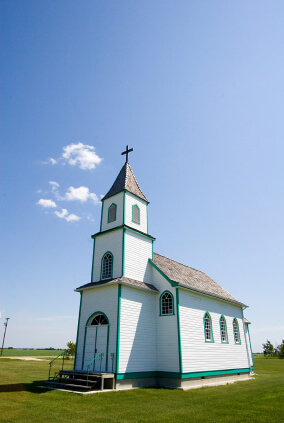Churches are Pushing Back Against U.S. Immigration Policies
February 19th, 2025

Since the arrival of the new administration, immigration policies in the United States have changed drastically. While many Americans are happy about these changes, the voice of discontent grows louder and louder. Among these voices are many church representatives. Although people of various faiths have been expressing their views on immigration for many years, the opposition between church and state on this issue is now reaching unparalleled levels. Some churches are even deciding to sue the United States government.
Quakers File Lawsuit against New Immigration Policies in Attempt to Keep ICE Out of Places of Worship
In January of 2025, a Quakers group made headlines after suing the new administration. In their lawsuit, they expressed opposition to ICE coming into various places of worship to arrest or detain undocumented migrants. Previously, the Biden administration passed an executive order preventing immigration officials from entering several protected areas. These areas included schools, churches, playgrounds, and food pantries.
One of the new administration’s first actions was to rescind this order. This ostensibly prevented undocumented migrants from seeking refuge in churches, and it allowed ICE to enter places of worship to make arrests.
The Quaker group argues that this new policy infringes upon their religious rights. Specifically, they claim that it creates an atmosphere of fear in their followers and forces them to cancel services. They point out that the practice of banning immigration officials from churches is very old in the United States, dating back more than 30 years.
In fact, this general practice is much older – dating back to the ancient concept of “sanctuary.” Under this doctrine, anyone facing persecution can seek refuge in a church. If an ancient person accused of a crime asked a church to provide them with sanctuary, they were often obligated to do so. Anyone who wanted to arrest or punish this person could not, as this would constitute a violation of the sanctity of the church. As such, they may have faced allegations of sacrilege.
In the United States, there were reports of people seeking sanctuary to escape slavery, the Holocaust, and other acts of prosecution. That being said, the concept of sanctuary has a much richer history in medieval Europe.
Many Faith Groups Support More Open Immigration Policies
The Quakers aren’t the only ones opposed to more restrictive immigration policies. During an inaugural prayer service, a well-known bishop lectured the newly elected president about deporting people from the United States. This individual also begged the new president to have mercy on not only undocumented migrants but also members of the LGBTQ+ community.
Some have pointed out that the Episcopal Migration Ministry has a financial incentive to support open immigration policies, as it earns tens of millions of dollars each year from taxpayers to help people come to the United States under “resettlement programs.” The new immigration policies halt these programs – and the revenue stream that they provide to the church. The Catholic church has been openly supporting more lenient immigration policies for many years. That said, it is costly to resettle immigrants, and the churches would argue this is part of their mission.
More Churches Join the Fight
This week, more than a dozen religious groups joined a lawsuit against the Trump Administration over the Department of Homeland Security’s new “sensitive locations” policy. The plaintiffs argue that:
“bring this suit unified on a fundamental belief: Every human being, regardless of birthplace, is a child of God worthy of dignity, care, and love. Welcoming the stranger, or immigrant, is thus a central precept of their faith practices.… An immigration enforcement action during worship services, ministry work, or other congregational activities…would shatter the consecrated space of sanctuary, thwart communal worship, and undermine the social service outreach that is central to religious expression and spiritual practice for Plaintiffs’ congregations and members.”
Keep Informed with the Universal Life Church
Each month, various cases test the nature of religious rights in this country. While the basis for many religious rights is the United States Constitution, there are still countless cases that question the exact nature of these rights. The Universal Life Church’s blog is focused on documenting the most noteworthy of these cases in an objective manner that can be easily understood by readers.


